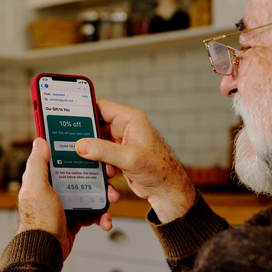Table of contents
While physical gifts are great, some people prefer to give gifts that yield treasured memories to last a lifetime. Enter the experiential shopper.
Experiential shoppers love to give experiences. A National Retail Federation survey says that in 2019, 25% of gift-givers planned on giving an experience of some kind. When that field narrows to 18- to 36-year-olds, the number increases to 36%. But this type of shopping and gift-giving is more difficult due to the COVID-19 pandemic, which means businesses need to get creative.
This experiential shopper loves to find unique, individualized experiences for themselves and their loved ones. This is where eCommerce retailers shine, because they have so many tools at their disposal to create and sell distinctive experiential gifts. These shoppers also enjoy experiencing things while they shop, so once more people return to in-person shopping, an eCommerce store with a brick-and-mortar counterpart can offer them the best of both worlds.
Understanding the experiential shopper
These ultramodern shoppers are growing in numbers with every passing year. Here’s what you need to know about them.
They want to go and do. Experiential shoppers are looking for everything from vineyard tours and spa days to skydiving and ballroom dance lessons for themselves and their loved ones. They want to engage in something that creates lasting memories. With most in-person experiences sidelined for the time being, many companies have shifted to offering virtual experiences — classes, demonstrations, boot camps, and lessons can all be set up online.
Food is love. According to a 2017 survey by the market research company NPD Group, the most popular gifts in this category involved food or beverages, like dining out, going to a food festival, or attending a wine tasting. Those gifts accounted for nearly 50% of the experiential gifts that year, followed by tickets to an event (32%), a spa certificate (31%), or some kind of travel-related gift, like a flight voucher or a hotel stay (23%).
Because personal travel has halted or changed dramatically due to COVID-19, businesses may see a rise in gifting food-related experiences that are virtual or can be cashed in at a later date.
Creativity is king. These consumers are out-of-the-box thinkers, and they want their retail stores to reflect that. This is an opportunity for small, more specific retailers to stand out by offering unique, one-of-a-kind gifts.
Offering experiences for shoppers or as giftable moments is extremely popular. According to the 2018–2019 Winter Consumer View at the NRF, nearly half of all consumers attended a “retailtainment” event (pop-up shops or product demos) throughout the previous year. When looking at millennials, that number jumps to 66%. With in-person retailtainment being nearly impossible, finding creative ways to offer virtual retailtainment becomes even more important.
How to meet the experiential shopper’s expectations
A lot of what experiential shoppers are looking for has been shaped by shopping trends that have emerged in the last few years.
Online booking is a must. Even before the COVID-19 pandemic started limiting in-person interactions, booking online for a later date was already a must-have feature. Nowadays, nearly everyone is carrying a tiny supercomputer around in their pocket, and consumers like the convenience of being able to book experiences from their smartphones. Hosting your experiences online is already something that is important to explore in the time of coronavirus, so online booking goes hand in hand with virtual classes or tours, helping to keep your calendar organized.
Offer memberships or subscriptions as gifts. Experiential shoppers love subscriptions or memberships they can give as gifts because the experience keeps on giving. Regular shipments that arrive with the cheese of the month, or a new board game, or a set of clothing, are a gift the recipient can enjoy all year.
According to the NRF, the main reason people like having subscription services is to “try new products,” followed closely by “convenience” and “variety.” Those are all hallmarks of experiential shoppers. Plus, of the consumers surveyed who have subscriptions already, a whopping 73% started using more subscriptions in the past year. It’s something consumers become accustomed to and subsequently want more of.
Don’t forget the gift card. Offering gift cards or certificates is an easy and popular way to appeal to an experiential shopper. According to the NRF, over half of the consumers who gift experiences do so because it creates a “special memory” and is a “unique” gift. Gift cards are a great way to do this because they allow for an individualized experience to be had by the recipient at your business, whether you own a spa, boat tour, restaurant, winery, or other similar place to spend a gifted amount.
In a National Retail Federation survey, 60% of consumers said they would prefer to receive a gift card — it actually topped the list of preferred items. Prominently display your gift card buying options online, and offer amounts that will help recipients redeem them for unique experiences at your business.
An added bonus for your business is that gift certificates can help keep cash flow steady when times are slower and be redeemed at a later date when in-person experiences are safer.
How to catch their eye
If your eCommerce store has a brick-and-mortar counterpart, offering in-store experiences is also key for the experiential shopper, either as shopping experiences or as something that can be given as a gift. While the COVID-19 is currently making in-person shopping difficult, there are ways to reach the experiential shopper online as well.
Create an experience between customers and your goods or services.
If you sell activewear, partner with a local yoga studio to offer a yoga class and then offer a discount on apparel to those who attend.
These experiences could either be offered for customers while they shop (socially distanced) or as items shoppers can purchase for someone else (or both). These experiences could also be offered online. Zoom yoga classes and meditation workshops, for instance, are all the rage right now during the quarantine
Make customers feel special. Experiential shoppers gravitate toward in-store activities because it makes their shopping experience feel unique; they also love to give one-of-a-kind experiences like these. But experiential shoppers also love to buy or give something with an air of exclusivity to it. This can include offerings like a membership or subscription, a special virtual VIP event for newsletter recipients, or a unique item that is only available to shoppers for a limited time.
Think about a pop-up shop. If you don’t have a physical location, or even if you do, you could partner with another retailer to offer bundled activities and items. You could create temporary physical location — a pop-up shop — offering limited-time items or demonstrations that make customers feel like they are experiencing something unique.
Again, if a pop-up shop is not currently feasible, you can still offer a virtual pop-up shop that offers bundles, demonstrations, or limited-time products. You might also consider creating special holiday gift boxes that bring the in-person experience to a customer’s home.
Reaching Experiential Shoppers Checklist
- Provide gift cards as an option for shoppers.
- Offer virtual food and beverage experiences if your business supports it.
- Utilize online booking to streamline scheduling virtual experiences.
- Propose memberships or subscriptions to your services or products.
- Make your customers feel special and unique with your offerings and store experience.
- Try a pop-up shop or virtual experience to reach more shoppers.
Above all, this kind of shopper is looking for a connection with a retailer. They want to feel like in-person or virtual experiences are created just for them, or that gift experiences are created just for the recipients. This interactivity and originality are paramount for the experiential shopper. And hopefully, that kind of creativity is rewarded with new customers who will be loyal even after the pandemic is no longer a threat.
![]()











